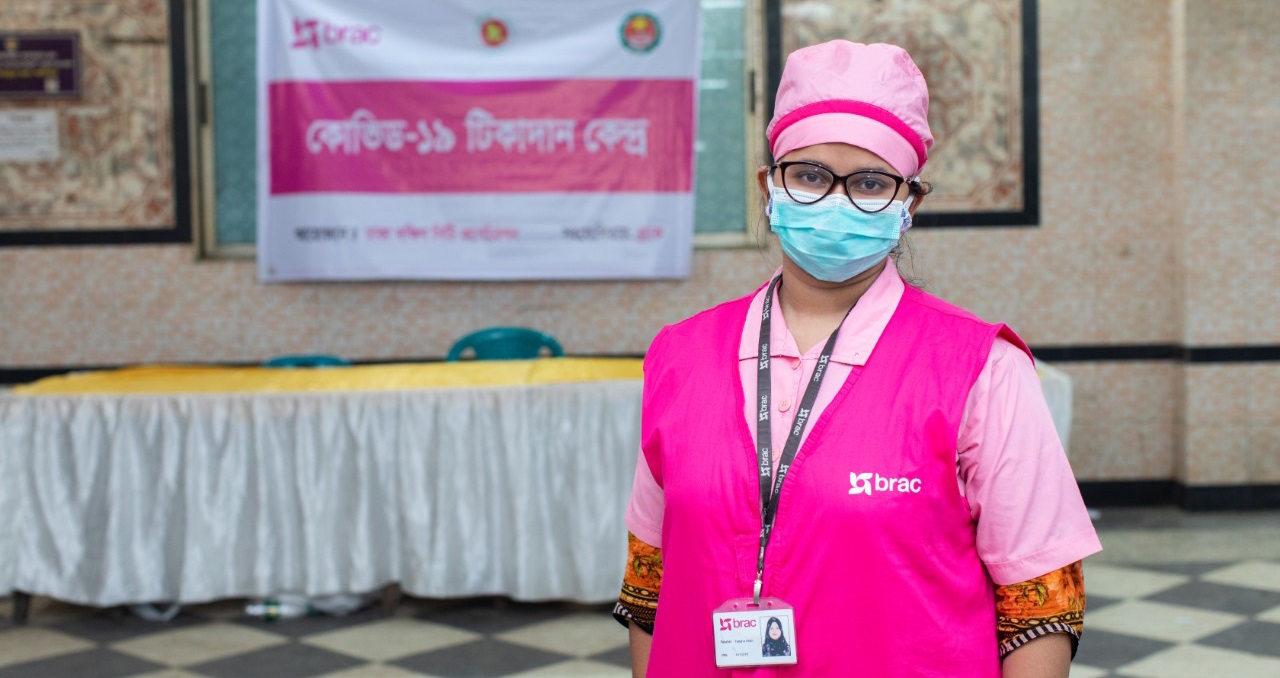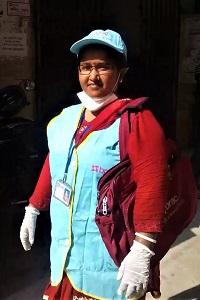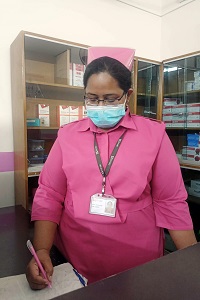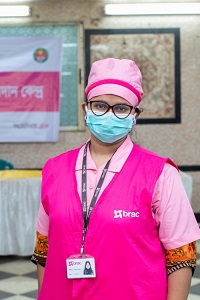Community health week: Celebrating three powerful frontline health heroes
As BRAC turns 50, we’re celebrating our more than 50,000 community health heroes who are delivering critical frontline care around the world. Here are three of their stories.
BY BRAC USA
Editor’s note: These stories were originally published on The Good Feed earlier this year. We’re happy to highlight them again here to mark Community Health Improvement Week among our US audiences and supporters.
As BRAC celebrates its 50th birthday this year, we are so grateful to reflect back on the past 50 years of igniting hope. Those decades of progress and hope have been powered by our inspiring participants, frontline workers, and supporters like you.
This week marks Community Health Improvement Week, and we’re celebrating the countless hardworking health workers who deliver critical care to hard-to-reach communities around the globe. Here, we are sharing three stories of inspiring health workers in Bangladesh.
Shipra, community health worker
Shipra is one of BRAC’s network of more than 50,000 health workers around the globe that deliver critical frontline care to families in their community, with a focus on maternal and child health. But amid the COVID-19 pandemic, her job dramatically shifted.
“During the onset of the pandemic, many people were afraid that if they tested positive for COVID-19, they would be treated as outcasts – or even arrested by the police,” Shipra explained. “Misinformation and stigma became a challenge in ensuring proper care of potentially infected individuals.
“The beginning of the pandemic put health workers like me in a challenging situation. I had never seen such fear in my community before. My own family was scared to let me go out. My husband used to ask me why I had to go to the field when everyone was staying home.
“I used to explain to him how I helped communities by educating people to protect themselves from the virus, and where to seek help if they have symptoms. Because of me, many families living in the slums understood how serious the pandemic was, and they took the necessary precautions to stay safe.
“I would ask him, ‘Aren’t you proud?’ and he would smile and nod.”
Fatema, midwife
In March 2020, when COVID-19 had just been declared a pandemic and Bangladesh was under lockdown, Fatema, a midwife at a BRAC maternity center, received a call from the husband of one of her patients. The patient was in labor, and they needed her.
Fatema immediately put on her personal protective equipment, walked to the patient’s house, and brought her to a nearby hospital. After three hours of labor, the mother gave birth to a beautiful baby.
Because of the lockdown, the mother and her new baby could not be visited by any family members. Instead, Fatema stayed with them for three days in the hospital. She also cooked meals for the mother.
Amid the lockdown, countless dedicated midwives like Fatema regularly brought extra clothes, food, and personal supplies to work so that they could stay there for several days to provide critical services for mothers and their new babies.
Tanjina, COVID-19 vaccine administrator
Tanjina joined BRAC as a midwife five years ago, but her life took a turn when the pandemic hit Bangladesh. The urgent shortage of health workers left her feeling inspired to help. When COVID-19 vaccines became available in Bangladesh, she trained with BRAC as a mass vaccinator to help address the shortage of vaccine administrators across the country.
Since then, in addition to her duties as a midwife, Tanjina has been helping to vaccinate people in her community to help protect them against COVID-19.
“I have always been a shy person. I never thought I could unravel my strengths of communicating with people, let alone calming people who are afraid of needles during vaccinations, until I joined BRAC,” said Tanjina.
“I realized women are made of so much more than we often have the opportunities to reveal. With the right resources, environment, training, and inclusion, women can flourish in the frontlines of any battle. Women can do anything in the world, if we believe it in our hearts.”
Shipra, Fatema, and Tanjina’s inspirational work reminds us of the many dedicated women around the world that dedicate their days to improving health and saving lives in their communities. On our 50th birthday, we are full of gratitude for our more than 50,000 dedicated health heroes around the world.
Supporters like you are our greatest gift. Visit our 50th birthday page to learn more about the past 50 years of igniting hope.



